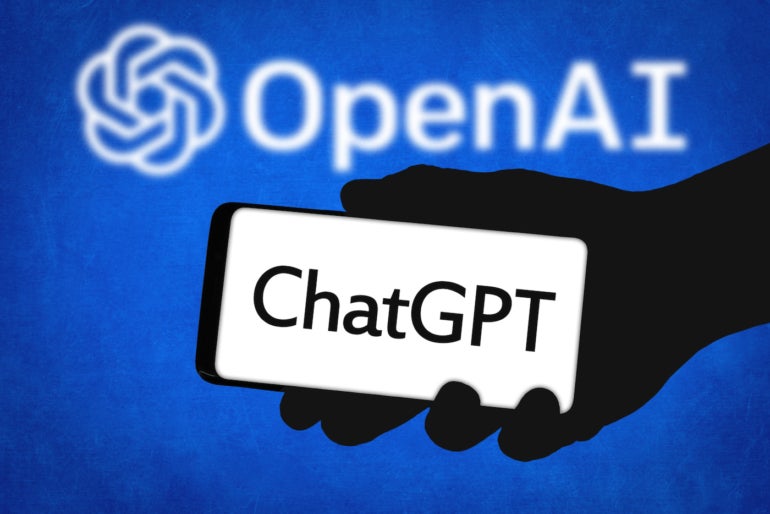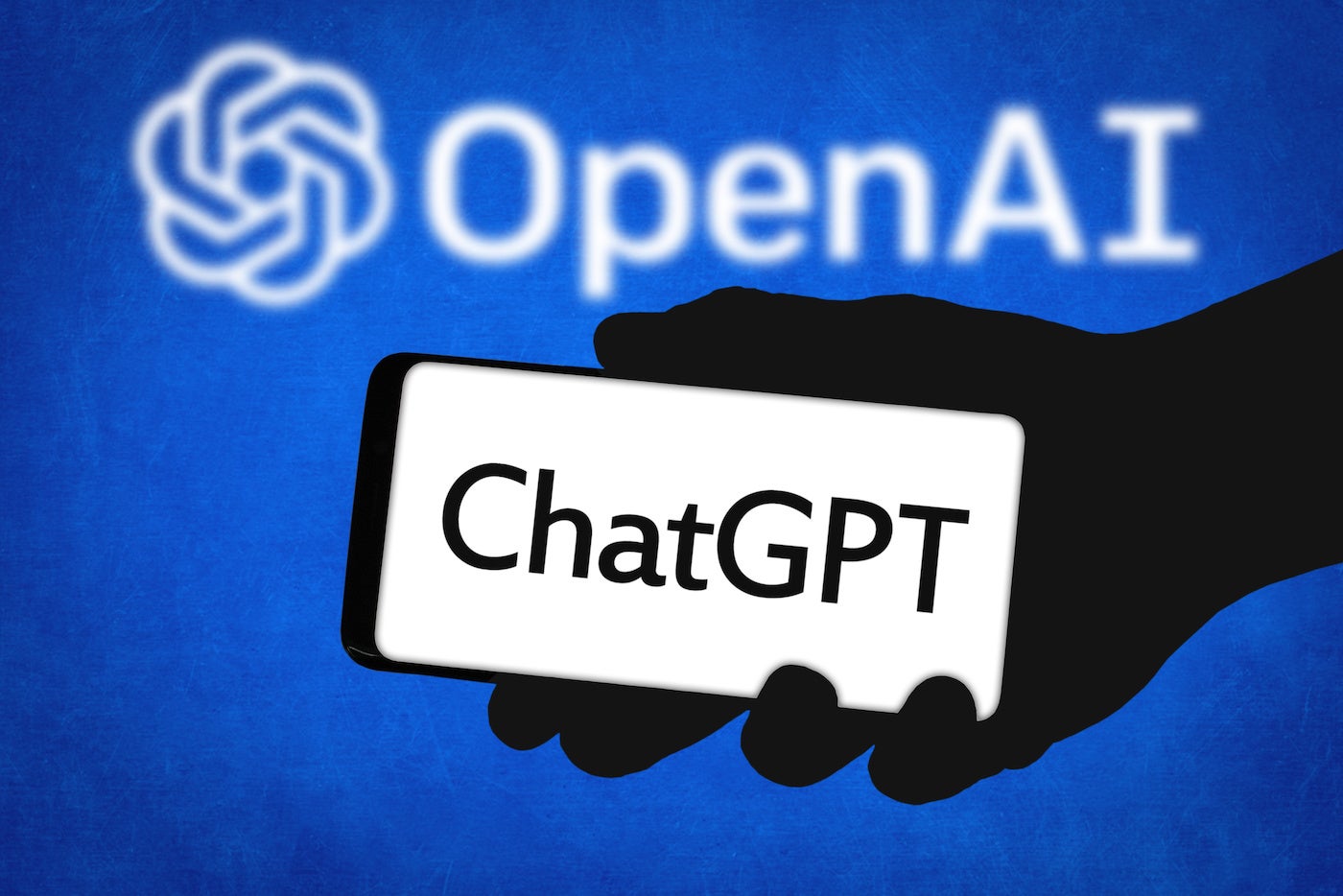
Today, OpenAI released ChatGPT Enterprise, an enterprise-grade version of its popular generative AI chatbot. ChatGPT Enterprise has enhanced security and privacy meant for business use and unlimited access to a high-speed version of ChatGPT‘s underlying large language model GPT-4. It also includes the ability to process longer inputs, advanced data analysis capabilities and per-organization customization options. ChatGPT Enterprise is available throughout OpenAI’s supported countries, including Australia and the United Kingdom.
Jump to:
- What is ChatGPT Enterprise?
- How can you get ChatGPT Enterprise?
- ChatGPT Enterprise’s place in the market
What is ChatGPT Enterprise?
ChatGPT Enterprise is a generative AI chatbot software platform. OpenAI sees it as an evolution of the type of chatbot assistant that is currently in vogue.
People from more than 80% of Fortune 500 companies have set up ChatGPT accounts, OpenAI said, according to its records of email address accounts with corporate domains. However, there has been some concern across industries that chatbots aren’t private because data from conversations held within the bots may be fed back into the massive pool of data the bots use for training. OpenAI intends to nip that concern in the bud by making sure ChatGPT Enterprise doesn’t use any conversations for training.
Keeping data in the user’s control doesn’t solve all the problems that generative AI can cause, though. Jim Hare, distinguished VP analyst in analytics and AI at Gartner, told TechRepublic ChatGPT Enterprise still doesn’t address concerns about copyrighted material appearing in the data sets. ChatGPT Enterprise also doesn’t necessarily solve the problem of AI hallucinations, or inaccuracies.
“OpenAI needed to launch an enterprise-grade version or risk losing out on enterprises looking at other options/providers,” Hare wrote. “This keeps them in the enterprise conversation and makes them relevant even if they haven’t addressed all the enterprise risks.”
Enhanced security and admin options
Admins in ChatGPT Enterprise can access domain verification, single sign-on, usage insights and manage users through a dedicated console.
SEE: Salesforce released a public policy prohibiting inappropriate uses of its AI products. (TechRepublic)
Plus, ChatGPT Enterprise data is encrypted in transit and at rest and is SOC 2 compliant, which the consumer version is not. Usage and advanced data analysis are both unlimited in ChatGPT Enterprise, unlike the metered consumer version.
“With the integration of ChatGPT Enterprise, we’re aimed at achieving a new level of employee empowerment, enhancing both our team’s performance and the customer experience,” Sebastian Siemiatkowski, chief executive officer at fintech company Klarna, told OpenAI in a blog post.
Upcoming additions to ChatGPT Enterprise
OpenAI plans to add even more to ChatGPT Enterprise in the future. Those enhancements include:
- Custom connections to other enterprise applications.
- A ChatGPT Business variant for smaller organizations.
- Improved Advanced Data Analysis and browsing.
- Tools made specifically for data analysts, marketers, customer support and other roles.
How can you get ChatGPT Enterprise?
ChatGPT Enterprise is available now. To get it for your business, you’ll need to contact OpenAI’s sales team. There is a page with more information. Pricing is unknown for now.
ChatGPT Enterprise’s place in the market
OpenAI has several rivals in the area of generative AI for business. Anthropic makes the AI assistant Claude, which doesn’t have an enterprise version with privacy guardrails comparable to ChatGPT Enterprise. Google plays in the same space with its Bard AI for Workspace products, which has an admin panel for enterprise use. Because Meta’s Llama 2 AI is open source, it can be integrated into enterprise use cases in a variety of ways, including inside the Microsoft Azure AI catalog.
There is a chance OpenAI might end up competing with itself because customers can get ChatGPT through Azure.
“Customers can choose which platform is right for their business,” an OpenAI spokesperson told Reuters.
Hare said OpenAI isn’t competing with itself, but instead with cloud and foundation model providers “that are viewed as more enterprise-grade.”
“ChatGPT is viewed more as a consumer-grade tool,” Hare said. “I think a lot of enterprises are exploring how tools like ChatGPT can be used in their organizations. Some business functions like marketing are using it to help create marketing materials but most enterprises are not using it for use cases that require entering customer or company confidential data into the tool.”
“There’s definitely potential for channel conflict and confusion, but at this stage in the game it’s all an adoption land-grab, and OpenAI and Microsoft are so tightly partnered I don’t think it hurts them,” said Josh Koenig, chief strategy officer and co-founder at website management service company Pantheon. “Microsoft has shown itself to be pretty adept at managing multiple channels for product adoption around their core offerings, and is doing a decent job managing the potential for conflict between Azure and GitHub, so if anyone can make this work, it’s them.”
ChatGPT has been an expensive project, with some estimates putting the cost of running it at $700,000 per day. Adding ChatGPT Enterprise as a new way to bring in some cash may help offset that drain.
